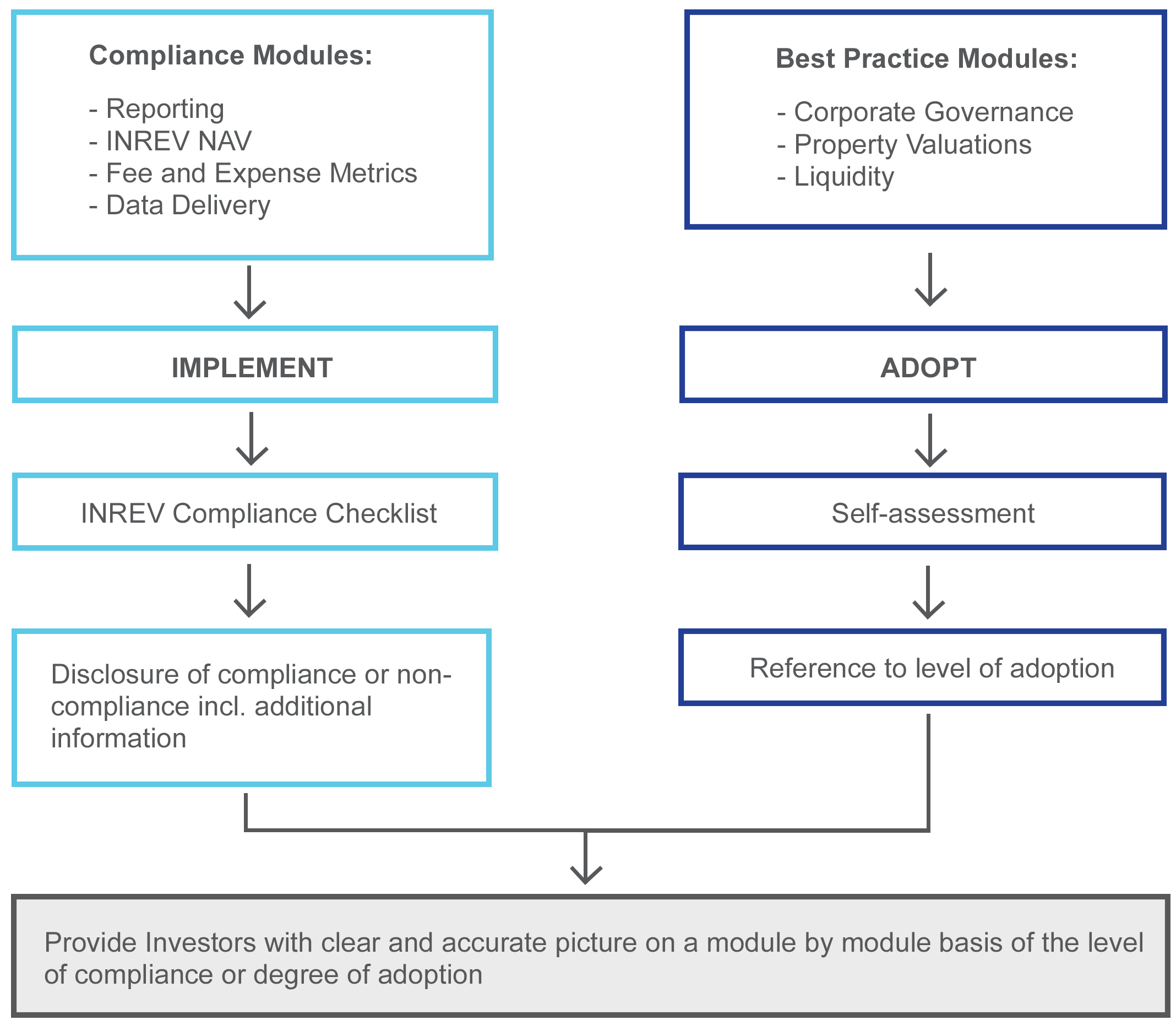The INREV Guidelines: how can they help you?
Revised INREV Guidelines reflect market changes
The revised and improved INREV Guidelines reflect market changes but continue to provide a sound basis for consistent and detailed information exchange and reporting, while offering benefits for investors and fund managers.
Why are the revisions important?
The Guidelines go to the heart of INREV’s objective to increase professionalism and transparency within the industry. Therefore, it is vitally important that they are kept current and relevant for investors and mangers. The revision over the last 18 months has helped INREV to reinforce this with the participation of over 300 members in the development and consultation process.
The revised Guidelines reflect the maturing industry by meeting the need for stronger reporting and increased transparency, which is essential when looking at performance measurement, benchmarking and asset allocations. They also provide best practice to support new entrants to the sector and champion the industry internationally by helping move towards the increasing globalisation of standards.
Finally, with the sector being increasingly subject to regulation, the Guidelines also respond to related needs for increased information and better reporting.
Guidelines take a practical approach

The development of the online Guidelines has made the INREV Guidelines more accessible and an easier reference tool for fund managers and investors. More examples and tools have been added for to help with implementation. The online Guidelines are organised into individual modules which will allow for easier updates, which is important to ensure that as INREV track the continuing evolution of the industry. Going forward, separate modules can be reviewed and new ones added at any time, meaning that guidance can quickly be updated in response to market or industry changes.
In addition, the introduction of a modular adoption and compliance framework will help managers and investors access and understand Guidelines compliance.
A filter within the online Guidelines has been developed so that members can select specific vehicle characteristics to receive tailored guidelines which are aligned to their individual fund structure and style. This is the beginning of greater tailoring of the Guidelines to reflect different structures such as open end funds, joint ventures and club deals.
For each module an online tutorial has or will be added to the website to explain the aim and content of a particular module.
Detailed changes in the Guidelines
Some aspects of the Guidelines have been reviewed and resulted in detailed changes.
Fee and expense metrics: these now follow the nature of costs rather than identity of the payee with more precise disclosure requirements, in particular, a single fee for a variety of activities.
Liquidity: rights and obligations in secondary transactions remain the same but there have been upgrades on issues and redemptions, and detailed requirements and best practices for vehicles winding-up and life extensions.
Reporting: the Standard Data Delivery Sheet has been properly incorporated while the Guidelines move beyond the historic discipline of only annual reporting towards a cycle that also includes interim reporting guidelines. There is also more guidance on how to manage the need for more detailed reporting.
Corporate governance: there is greater clarity to issues such as equity issue and redemption mechanisms, as well as fee and expense metrics. These are with the aim at improving levels of disclosure and transparency.
The Guidelines support sector entrants and champion the industry internationally.
Future implications
The Guidelines are a dynamic tool. One of the intended consequences of the review is to ensure they are more flexible so in the future INREV can more easily:
- Update and expand existing guidance
- Add tailored guidance on new types of vehicles for example joint ventures, debt funds and club deals as well as styles or structures.
In the coming months, a due diligence questionnaire for debt funds and a module on performance measurement will be added. INREV has also established the framework to further tailor the Guidelines by setting up focus groups to look at specific issues (see Committee Update).
What has been achieved through that revision has been significant but the INREV Guidelines will remain a live project to support members’ ever changing needs and INREV’s mission to increase professionalism and transparency within the industry.










